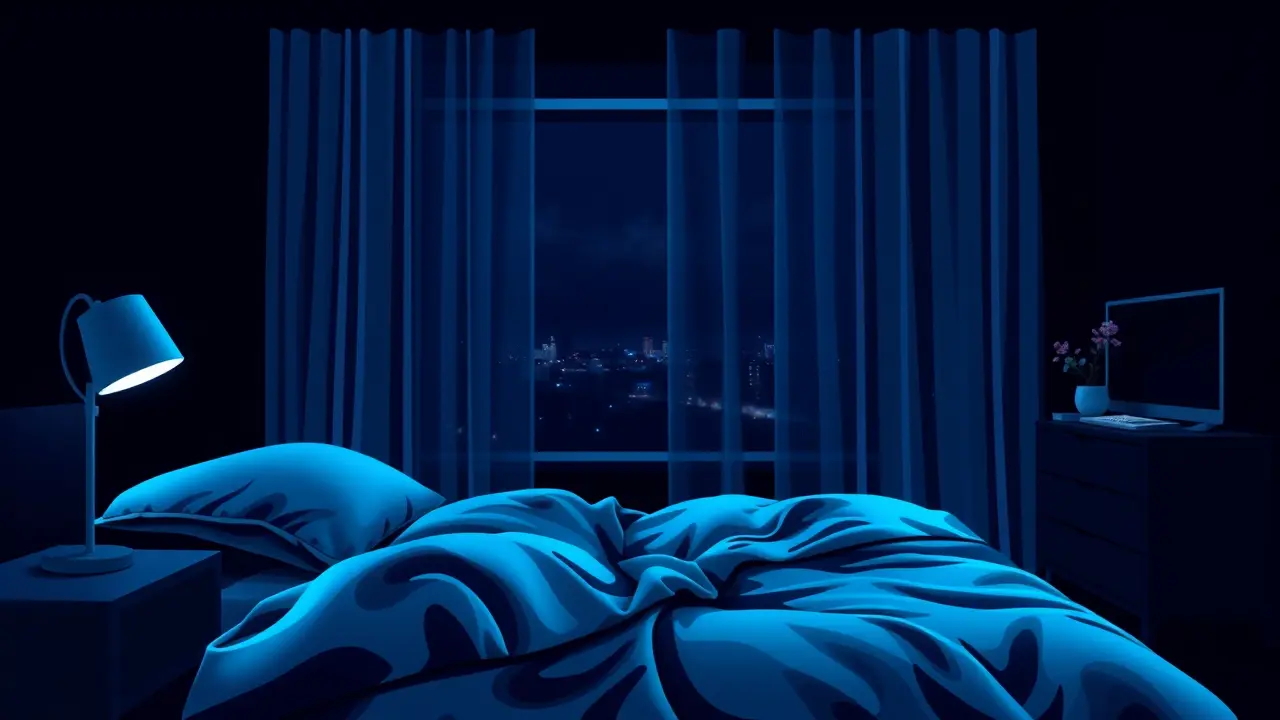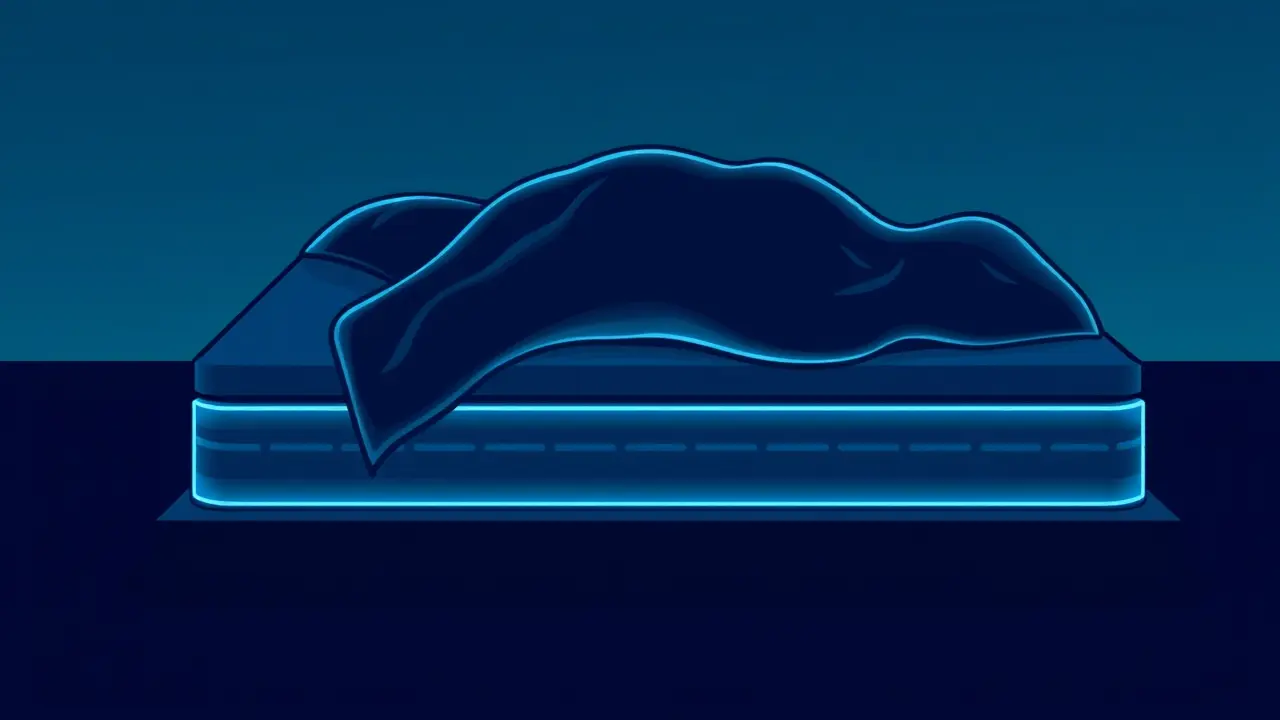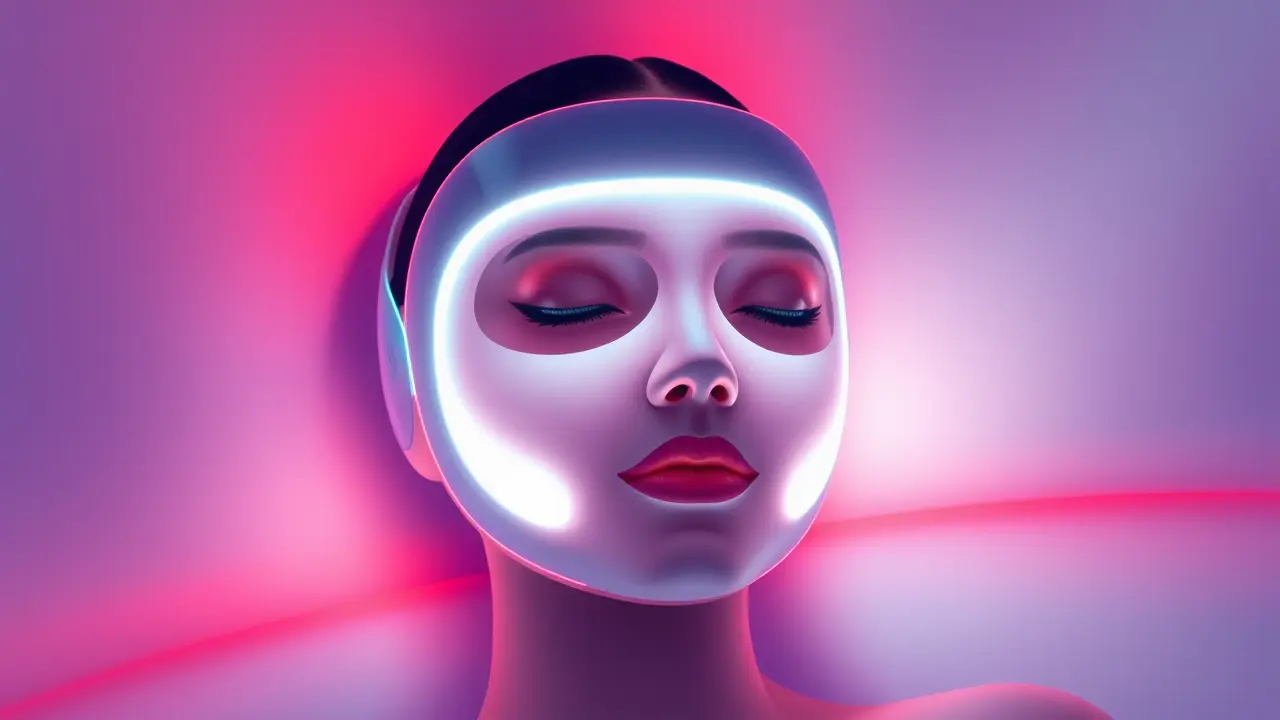
Scienceneuroscience
Your bedroom glow might be quietly damaging your heart
RA
Rachel Adams
8 hours ago7 min read
The soft, persistent glow from your smartphone charging on the nightstand, the faint streetlight bleeding through the blinds, the standby LED on your television—these seemingly benign sources of artificial light are not merely disrupting your sleep; they are, according to a sobering new study from researchers in Boston, quietly assailing your cardiovascular system. This isn't speculative science; it's a hard-data warning from the front lines of environmental health, revealing a direct physiological pathway where nighttime light exposure escalates stress-related brain activity, which in turn inflames arteries, signaling a dramatically higher risk for heart disease.The mechanism is as insidious as it is effective: our bodies, evolutionarily wired for the profound darkness of a pre-industrial night, interpret this constant artificial luminescence as a perpetual state of alert, disrupting the normal, restorative dip in our stress responses and plunging our nervous systems into a low-grade, chronic fight-or-flight mode. This sustained alarm doesn't just leave you feeling frayed; it catalyzes a cascade of inflammatory markers, a biological corrosion that weakens arterial walls and paves the way for atherosclerosis, heart attacks, and strokes.It’s a silent epidemic fostered by our own progress, an ecological mismatch of the highest order where the very symbol of human advancement—our ability to banish the dark—has become a toxin seeping into our bedrooms. Experts, their voices echoing with the urgency of climate scientists charting rising sea levels, are now issuing a clarion call for a fundamental redesign of our nocturnal environments, advocating for the reduction of unnecessary urban glare and the cultivation of true darkness in our homes as a non-negotiable pillar of cardiovascular protection.The data paints a stark picture, one that connects the sprawling, light-polluted maps of our major cities to public health crises, suggesting that the health of a population can, in part, be measured by the depth of its night's darkness. This is more than a lifestyle tip; it's an intervention, a necessary step to recalibrate our biology with our environment, to acknowledge that our hearts, much like the ecosystems we strive to protect, require periods of undisturbed rest to function properly. The research from Boston serves as a critical data point in a larger, more distressing narrative about how modern life is quietly, persistently eroding our health from the inside out, and the prescription is disarmingly simple: to save our hearts, we must first learn to embrace the dark.
#featured
#nighttime light exposure
#heart disease
#stress response
#chronic inflammation
#cardiovascular health
#Boston research
Stay Informed. Act Smarter.
Get weekly highlights, major headlines, and expert insights — then put your knowledge to work in our live prediction markets.
Related News
© 2025 Outpoll Service LTD. All rights reserved.












